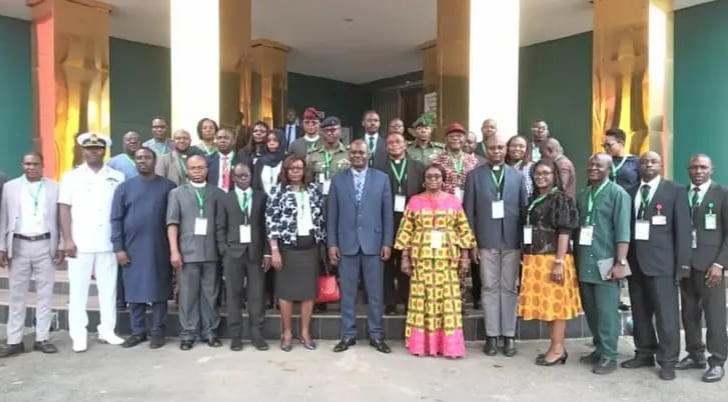By Sumaila Ogbaje
Dr Joseph Ochogwu, the Director-General, Institute for Peace and Conflict Resolution (IPCR), has called for emplacement of effective conflict management mechanisms by agencies of government to forestall escalation of violence.
Ochogwu made the call at the opening of the Forgiveness, Justice, and Reconciliation Course 2, convened by IPCR and the Peace Building Development Consult (PBDC), on Monday in Abuja.
He said that the most effective way of managing conflict was through peace, justice and reconciliation as a way to build trust and confidence among the various divides in the society.
According to him, conflict is part and parcel of human existence and as such, is inevitable and a normal outcome of any human interaction.
Ochogwu said that the various major crisis in the country escalated because of lack of management such as Boko Haram in the North-East.
“If, we had managed the group effectively and doused the tension, we wouldn’t have wasted enormous national resources, both human and material resources, which we wasted in the last ten years or more.
“If we had managed the crisis in the South-East as well, it wouldn’t have escalated to the level to which it is escalating and it is looking very protracted and intractable.
“You see conflict in the North-Western part of the country too, where the lack of simple conflict management technique was not used to douse those kind of tension.
“You find that also playing out in the North-Central part of the country, where we needed peaceful means for resolving conflicts and all that, but we choose the hard, difficult part, the more expensive part.
The director-general noted that violent conflict management efforts in the country were not always successful with violent conflicts occurring with potential devastating effects on national security, peace, development and nation building.
According to him, Nigeria has its fair share with staggering consequences, including loss of lives and properties, financial losses, the negative shaping of beliefs and prejudices amongst the citizens, and the wounds.
“The negative consequences of conflict for nation building underscore the need for holistic and collective action to preserve national security and coercion and provide a fertile ground for nation building.
“The use of force is increasingly becoming very expensive to the Nigerian state and so we need to upscale our non-kinetic approaches to conflict management rather than the kinetic approaches,’’ Ochogwu said.
The failed to be done,
Bolaji said that everyone was part of the problem in one way or the other; hence the need for all to be part of the solution, adding that forgiveness was critical in all the conflict resolution models.
According to him, forgiveness is the only model that goes deep into the past, present and future.
“It is a soft skill that Nigerians must know and also have the ability to deploy, to be able to correct the problems that we are facing in the country.
“Some people will see it as unfair because sometimes you don’t get what you deserve from the situation but it is the only model that takes everybody together and heals wounds, corrects the wrong and satisfies the reconciliation,’’ he said.
Bolaji said the participants were drawn from the military, paramilitary, civil society organisations, law enforcement agencies, ministries, department and agencies, as well as state and local governments.
He said the course was designed to give every participant the opportunity and freedom to raise observation, adding that participants were also resource persons at the same time.
The News Agency of Nigeria (NAN) reports that the course has key themes such as the History of Violence; the Nigerian Security Dynamics; Concept and Methods of Forgiveness and Justice.
Other themes are Forgiveness and Public Policy; World-View Analysis, Cross-Cultural Communication and Connections; Building a Peace Intervention Process and Truth Recovery, Trust Building, Reparation and Restitution amongst others. NEWS AGENCY OF NIGERIA

